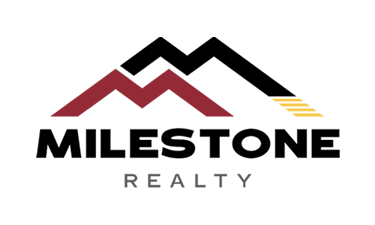What are FHA loans are and how do they work?
FHA is probably the second most common loan in the U.S. today for buying a home. Your basic conventional loan — not the jumbo amounts and not anything super-complicated; the conventional and the FHA are the 1-2 punch of most home buying today.
FHA is a loan guaranteed by HUD — the U.S. Department of Housing and Urban Development. It’s similar in concept to a guaranteed HUD/FHA isn’t on the hook for a loan if the buyer defaults. The lenders involved, or insurance companies they pay, have that responsibility. What all this means is that the program is paid for by the participants in it — no taxpayer dollars. There are fees or insurance premiums the lenders pay to cover that. It’s all financed by the people actually using it.
FHA, as you said, is the Federal Housing Authority, the actual agency that guarantees the loan. I would emphasize here that these entities — HUD and FHA — do not actually lend the money — that comes from a lender, whether a bank or some other funding source or company. They just guarantee the loan once it’s made.
Since they’re guaranteeing the loan they get to make rules about what loans get made. Lenders that are “FHA-approved” issue their loans — lend you money to buy a house — based on a slew of guidelines from FHA.
HUD sets those guidelines through FHA —the agency is run by or under the department — and lenders comply with them. This is great news in several ways — not least of which because it means these lenders have been vetted by an outside authority, and a pretty big one at that — the U.S. government.
OK so what kinds of guidelines are we talking about here?
These guidelines involve everything that buying a home involves: down payments, credit scores, income calculations, and so on. This follows on the overall vetting process as another good thing because now we have baselines for all these super-vital parts of the process of buying a home. Instead of wondering “how much” of this or “when am I OK here?” FHA guidelines just flat out tell you.
So everyone should go get an FHA loan?
The people who benefit the most from FHA loans are ones who have saved less money for their down payments — not out of any kind of mistake or bad behavior, it’s just reality, or how much time they’ve been saving, or what’s in the 401(k) that can contribute to the down payment, and so on. The program might also appeal to people on the lower range of a good credit score. So if you have a strong down payment — 10 to 15% or more — and excellent credit, you’re going for that conventional loan. FHA loans are out there to offer terms to buyers who might not qualify conventionally through a bank or credit union. It’s giving people access to the credit markets who don’t usually get it — based on what I mentioned before, which are those specific guidelines on what the loan can look like.
What are the guidelines?
For one thing the down payment is almost always 3.5%. That’s 99 out of 100 cases. There are rare instances — hardly any, as you can see — where you have to come up to something a little higher than that for the down payment. But in general that’s the number and the interest rate on that loan is going to be the same whether you put 3.5% or 35% or 85% — though, of course, if you can put 85% down you don’t need FHA and why aren’t you letting that money work for you in stocks!
One caveat or exception here is that if you put a little more down — say 5% instead of 3.5% — you can get a lower monthly premium for the insurance. But it makes such a small difference on the monthly payment. It’s not usually worth it. Might as well take that extra 1.5% and start working on the home to get it exactly how you want it, or maybe go out to dinner for a week to celebrate buying it.
Bottom line here is that people with a lower down payment saved are probably going FHA.
Do I have to be a first time home buyer to qualify for an FHA loan?
While FHA is not a first-time homebuyer loan by design, it’s just that many first-timers, not coincidentally since they haven’t been building up equity in a home they own, only have the low down payment.
It’s a low down payment loan which often means first-time homebuyers. But it doesn’t have to. There’s only one requirement for an FHA loan and that is that you don’t currently have another FHA loan outstanding. You can only have one at a time. What that means is if you’re in a home, now, and looking to move up, tap the equity and get a bigger place, or move down as an empty nester — you can’t get an FHA loan for the new house if you have an outstanding FHA loan with the home you’re in now. You’d have to sell the home you’re in first, which tends to be tough as you’re also trying to move into a new place.
Basically an FHA loan has to be “owner-occupied” — meaning you have to live there. You can’t take out an FHA loan on a rental property or an investment or a home you’re planning to flip. It works that way for one simple move — you just can’t get a new FHA loan for the new home. So if you buy with FHA and five years later want to make that a rental, you’re not going to get a new FHA loan on the home you move into. In that case you refinance the existing loan — close it out with a new conventional one, which might now be possible for all the equity that built up in five years — and then you keep it as a rental and move into your new place, with a new — 3.5% down — FHA loan.
So what are some of the downsides to FHA? You said there are differences for FHA compared with conventional — what are some of those?
The main difference is that mortgage insurance premium. No matter what, you pay it. You could put 50% down and you would still have to pay for that insurance — it’s how the loans can be made at all because as we said it basically goes into the fund that guarantees FHA debts.
So again, one point there is if you have enough of a down payment to go conventional — do it. Saves you from paying that insurance premium.
With a conventional loan you can often get rid of that mortgage insurance but with an FHA loan you never will — you can’t get a “lender-paid” deal where you trade a slightly higher interest rate for no insurance. You can’t get rid of it — at all — until the loan is gone.
Maybe you can do that through a later “refi” after you build up that equity but that’s later: right now, you’re paying it.

